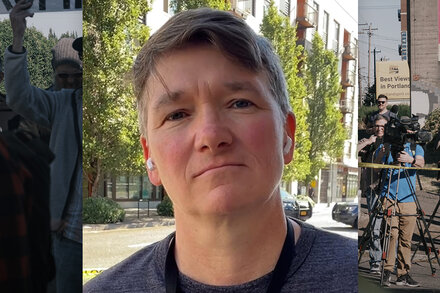The U.S. Court of Appeals for the Ninth Circuit will soon hear oral arguments in a key case questioning the federal government’s authority to deploy law enforcement to Portland

The U.S. Court of Appeals for the Ninth Circuit is scheduled to hear oral arguments in a pivotal case challenging the legality of the federal government’s deployment of law enforcement agents to Portland, Oregon, during periods of significant civil unrest.
The case, brought by the State of Oregon and several civil liberties organizations, centers on the scope of federal authority to intervene in local affairs without the explicit consent of state or municipal governments, particularly concerning domestic law enforcement and crowd control tactics.
Background to the Deployment
The legal challenge stems from events where federal agents, primarily from the Department of Homeland Security (DHS) and its component agencies, were deployed to Portland. While federal officials stated the deployment was necessary to protect federal property and personnel amidst prolonged protests, critics argued the agents engaged in aggressive tactics, detained individuals without clear cause, and escalated tensions.
Local and state officials repeatedly called for the withdrawal of the federal presence, asserting that their actions exacerbated the situation and infringed upon states’ rights to manage public safety within their jurisdictions.
Arguments from Both Sides
Attorneys representing the federal government are expected to argue that the deployments were a lawful exercise of federal power to protect U.S. government property and personnel, ensure compliance with federal laws, and support national security interests. They contend that the agents were responding to threats against federal buildings, such as the Hatfield U.S. Courthouse, and that their actions were within constitutional bounds.
“The federal government has a clear mandate to protect its assets and personnel, and to restore order when federal property is under direct assault,” a spokesperson for the Department of Justice stated in the context of the case. “Our agents acted to uphold federal law and protect critical infrastructure, a responsibility we take very seriously.”
Conversely, lawyers for the State of Oregon and the challenging organizations will argue that the federal deployment constituted an unconstitutional overreach, violating the Tenth Amendment, which reserves powers not delegated to the federal government to the states. They further contend that the agents’ actions infringed upon citizens’ First Amendment rights to free speech and assembly, and their Fourth Amendment protections against unreasonable searches and seizures.
“This case is fundamentally about the limits of federal power and the sovereignty of states,” Oregon Attorney General said. “Uninvited federal intervention that suppresses peaceful protest and disregards local authority sets a dangerous precedent for our federal system of government.”
An attorney for the American Civil Liberties Union (ACLU), a party to the lawsuit, added, “We are asking the court to reaffirm that citizens’ constitutional rights do not disappear when federal agents are deployed, nor does a state’s right to govern within its own borders. The actions observed in Portland were a clear violation of these principles.”
Potential Implications
The appeals court’s decision could establish significant legal precedent regarding the federal government’s ability to unilaterally deploy law enforcement personnel into cities and states without local consent. A ruling in favor of Oregon could bolster states’ rights claims in future disputes over federal intervention, while a ruling upholding the federal government’s actions could grant broader authority for such deployments.
The highly anticipated hearing is expected to draw considerable public and legal scrutiny as it delves into complex questions of federalism, constitutional rights, and the balance of power between different levels of government in times of domestic unrest.
Source: Read the original article here.





